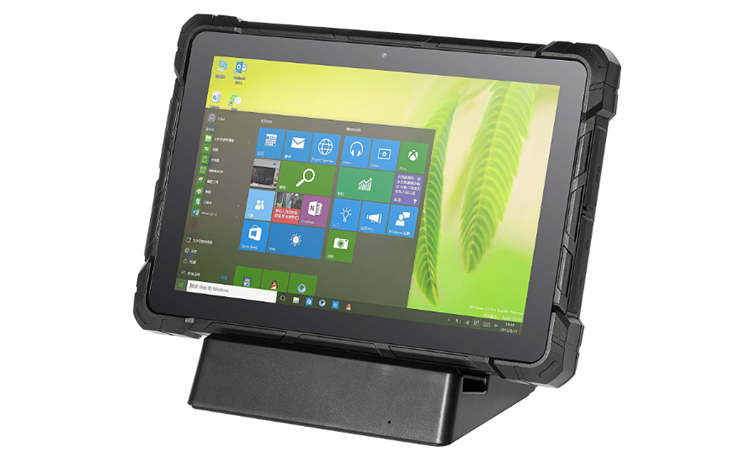Industrial medical tablet computer use scene in hospital
With the development of wireless network technology and identification technology, patient identity, medicines, blood bags and other information have been digitized. Each step in the execution of medical orders can be checked and confirmed by the computer system in real time, which is essential for ensuring patient safety and improving The quality of medical care has played a huge role in reducing medical accidents.

1、Mobile care:A patient needs to go through three steps from seeing a doctor to getting treatment: 1. The doctor examines the patient and issues a doctor's order after getting a preliminary diagnosis; 2. The nurse transfers the doctor's order to the infusion or treatment card and prepares to execute it; 3. The nurse implements the treatment plan. Each step of these three links is crucial. Due to the limitations of technology and objective conditions, the various measures adopted by hospitals for a long time have not been able to effectively reduce the occurrence of medical accidents.
2、Mobile rounds:In the process of rounds, doctors often need to retrieve the patient's electronic medical record at any time, and give medical advice at any time according to the patient's specific condition at the time. The application of wireless network enables doctors to inquire about patient-related information at any time through mobile smart terminals that they carry with them, such as tablet computers and PDAs. Eliminating the trouble of always holding a large pile of case records in the past, the condition can be more accurate, timely and comprehensive to understand the patient's medical history and treatment process. Doctors' rounds have become simple and easy, and patients can receive timely and accurate treatment.
3、Mobile infusion:Many medical accidents are caused by errors in the infusion process. For most hospitals, how to effectively manage the infusion of patients, especially outpatients, is a difficult problem. The mobile infusion management system can solve the problem of patient infusion in a complex environment such as outpatient clinics with limited space and high mobility of personnel. All checking work during the patient's infusion process is realized by the nurse holding a wireless PDA with scanning function, and all processes such as taking medicine, dispensing medicine, and infusion are supported by professional systems. The corresponding barcode automatically generated by the system contains information such as patient, medicine and seat, so that the medical staff can see at a glance, effectively eliminate the hidden dangers of previous manual operations, and truly realize the right patient, the right medicine, the right dosage, the right time, Correct usage.
4、Mobile triage:Doctors can register and transfer the number of patients received or waiting to the computer of the triage staff at the front desk through the equipped tablet computer or PDA, so that triage staff can understand the current reception status of each outpatient doctor and allocate resources in time.
With the development of the Internet, the Higole mobile medical tablet adopts a compatible windows operating system, which can be used for electronic medical records, diagnosis and treatment management, image workflow, CPOE, medical sales support and electronic prescriptions, and smart mobile terminals are as follows All aspects can play an important role: barcode patient identity management, mobile medical order, diagnosis and treatment sign entry, mobile drug management, mobile medical examination specimen management, mobile medical record management, etc., and Higole's medical tablet computer is suitable for schools, justice ( Prisons, reeducation through labor), public security, armed police, firefighting, troops, athletes, mainly used in psychological consultation, medical and other industries, psychological decompression, emotional relaxation, daily decompression, state motivation and psychological recovery training, etc.